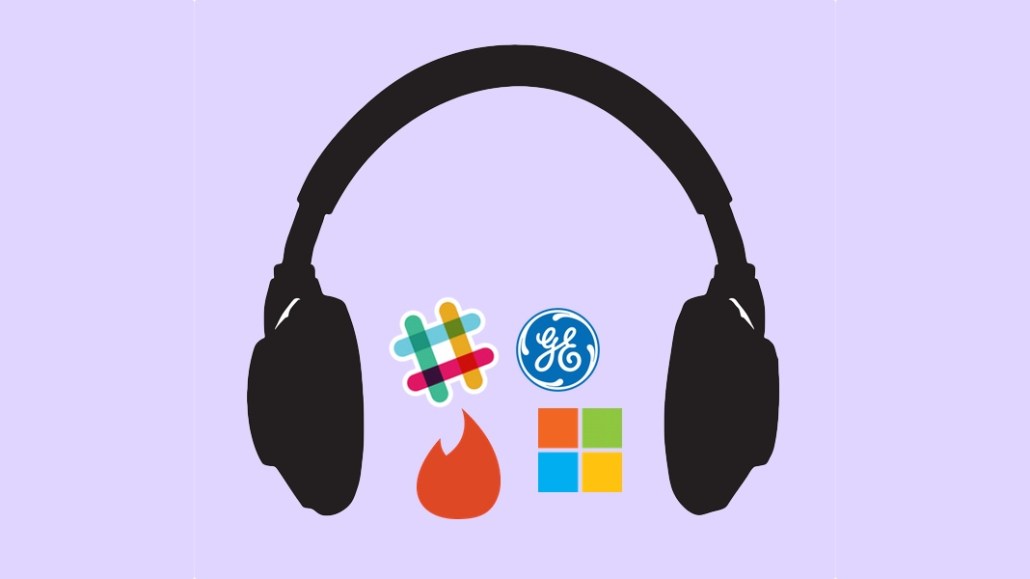Secure your place at the Digiday Media Buying Summit in Nashville, March 2-4
Hunting for brand dollars, podcasters turn attention to measurement and attribution

Podcasting has long had a reputation among advertisers as being low-tech, hard to measure and reliant on a quaint ad format, but its players are stepping up their efforts to dispel those notions.
On Sept. 6, companies from NPR and Westwood One to How Stuff Works gathered at the fourth annual IAB Podcast Upfront. But in contrast with past events, where the emphasis was on content, this time presenters focused on products like targeted marketplaces, attribution and retargeting tools to attract brand advertisers, who have mostly ignored podcasting because of the medium’s measurement issues.
Some media agencies are skeptical that new stabs at measurement will work, while others see it as a sign that the medium is finally catching up to the obsession with measurement that’s encroaching on other forms of digital advertising.
“Last year, we were talking mostly about content,” iHeartRadio CMO Gayle Troberman said. “Now, the marketers are asking about targeting and measurement and results. The challenge for brands is how this grows from an experimental investment.”
Podcast is small relative to other digital mediums, but revenue is projected to more than double in size, to $659 million by 2020, according to an IAB/PwC study. Legacy media companies continue to invest in the space: Univision was a first-time presenter at this year’s upfront.
And compared to other digital mediums, podcasting has been fairly low-tech — more than two-thirds of its ads were host-read, and under 60 percent were dynamically inserted in 2017, the IAB/PwC study said — a reputation that podcasters seem determined to shed. At the event, Wondery CEO Hernan Lopez pitched an attribution tool and retargeting tool, Bullseye, that serves display ads to people who have heard ads on Wondery podcasts. Panoply chief revenue officer Matt Turck talked up the Megaphone Targeted Marketplace, an ad network that lets advertisers target up to 60,000 Nielsen audience segments across Panoply.
But both the IAB and the Media Ratings Council released ad measurement toward the end of 2017, and so stats and analytics are becoming a bigger topic of conversation. Some on the podcast advertising side expressed optimism about the prospect of being able to more clearly measure ads’ impact. Media agencies that serve direct-response advertisers expressed concern about possible competition from brand advertisers, though.
“It doesn’t do the performance marketers in podcast any favors because standardization will invite increased brand dollars, driving up demand on inventory and making the media less attractive to performance marketers, on whose backs the podcast industry has been built,” said Dan Granger, the founder of media agency Oxford Road. “Attribution has been a challenge for more than a century and will likely be a challenge a century from now. It never goes away. However, we applaud any efforts to fight the good fight alongside us and our clients.”
Others see risk in pitting podcasts against other forms of media. Josh Pollack, vp at the talent agency APA, which represents the talent behind podcasts including “Snap Judgment,” said if podcasting gets too measurable, it could be shown to be less effective than people thought and the high CPMS it’s known for could come down.
More in Media

From feeds to streets: How mega influencer Haley Baylee is diversifying beyond platform algorithms
Kalil is partnering with LinkNYC to take her social media content into the real world and the streets of NYC.

‘A brand trip’: How the creator economy showed up at this year’s Super Bowl
Super Bowl 2026 had more on-the-ground brand activations and creator participation than ever, showcasing how it’s become a massive IRL moment for the creator economy.

Media Briefing: Turning scraped content into paid assets — Amazon and Microsoft build AI marketplaces
Amazon plans an AI content marketplace to join Microsoft’s efforts and pay publishers — but it relies on AI com stop scraping for free.








